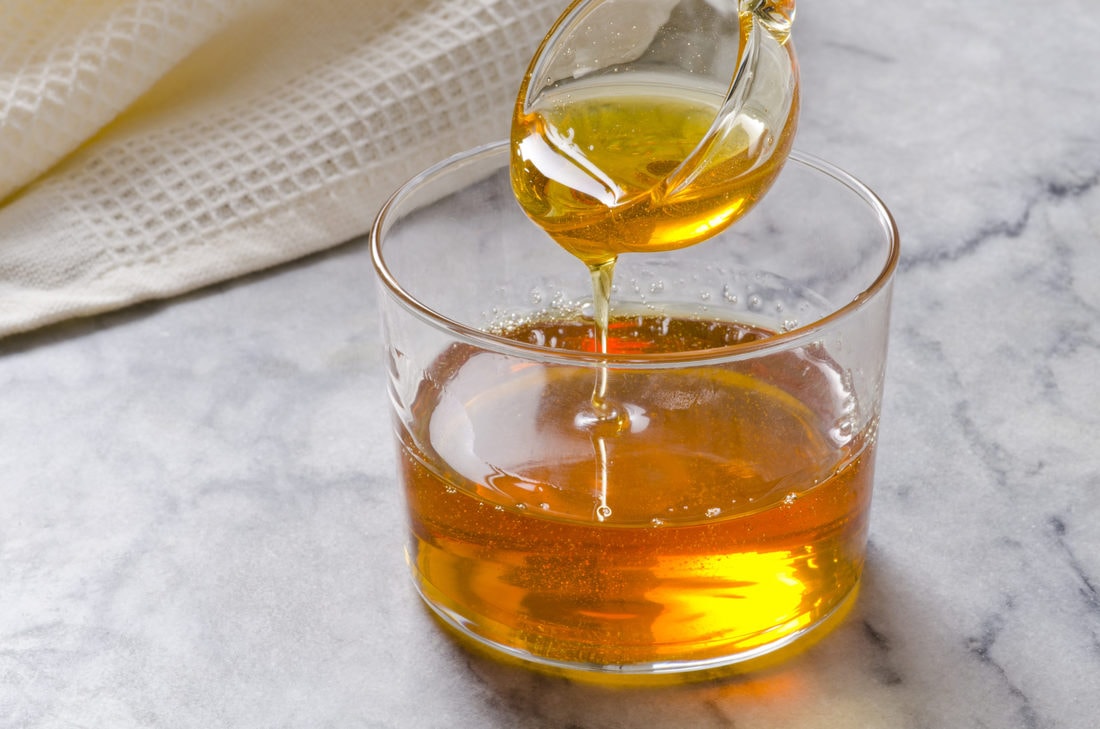In regards to veganism and sweeteners, finding the right one for you can be a tricky process, especially when it comes to refined sugars. Many people are beginning to switch to a completely different form of sweetener and steering clear of sugar altogether. This hot commodity is known as agave. Whether you are looking for raw agave or natural agave syrup, otherwise known as agave nectar, the main question on our minds is: Is agave vegan?
Unlike refined sugars, agave doesn’t need much processing at all. In fact, it’s considered vegan because of this (no animals are harmed in its production). But unlike other sugar substitutes like artificial sweeteners and stevia extract which can be unhealthy for us when consumed on a regular basis due to their intense sweetness, the health benefits attributed to agave have been proven negligible thus far – but they’re still there!
How Is Agave Sourced and Processed?
Agave juice is sourced from two different agave plants. Each plant is considered a monocot type of plant. These two types of plants are native to Southern America, as well as some regions in the Caribbean. The two different types of agave plants are the agave tequilana (blue agave), and the agave samilana. The juice produced from these two plants is 1.6 times sweeter than sugar and can be processed into a thick liquid known as agave syrup or agave nectar.
The processing method of agave is entirely natural and doesn’t include any additives, which is a significant plus. There is even an option for raw vegans as well. Raw agave simply means the juice hasn’t been treated with heat above 117 degrees Fahrenheit. This also means the agave is processed even less because it is raw. As for the agave that isn’t raw, when the juice is processed, the fructans are extracted and broken down into fructose when they’re exposed to heat.
The process of creating fructose within the syrup is what tends to get people’s heads to turn and eyebrows to raise. It is true that fructose is metabolized by the liver, which I will get more into in the section below, but just because it bypasses the bloodstream doesn’t make it a healthy option for sweeteners. It is said that the metabolizing of fructose in the liver can actually slow down your metabolism and cause you to gain weight among other health risks.
Noting this, though, sweeteners aren’t meant to be considered a “healthy” option regardless. That is unless you are sweetening everything with dates or figs. When it comes to comparing to other sweeteners like organic sugar and honey, agave is an appropriate choice. All of that said, agave is completely vegan. There is nothing from the way the juice is sourced to the way it is processed and manufactured that isn’t vegan, especially if you choose to go with raw agave syrup.
What Is the Nutritional Value of Agave Syrup?
One of the most critical questions other than wondering if the syrup is vegan is wondering if the syrup is a healthy alternative to sugar. There is no arguing the fact that people are starting to become more aware of what is healthy and how they should be fueling their bodies, especially people that have adopted the vegan lifestyle. It is nearly impossible to adopt a vegan lifestyle and not wonder about your health in the process. Just like anything else, though, it is all about moderation. Agave is considered to be a healthy substitute for sugar when it is consumed in moderation.
A lot of it has to do with the way it is processed. There aren’t any additives in natural agave syrup; what you see is what you get for the most part. That is what makes it a little better than sugar. Not to mention, it also has some essential vitamins and minerals available that sugar does not. Agave provides at least a little nutrients to the system, while sugar has zero.
Generally, one teaspoon of agave nectar contains 20 calories, 5 grams of carbohydrates, and 4.7 grams of sugar. Below is a complete list of the vitamins and minerals provided in agave syrup:
Minerals:
Vitamins:
This most certainly proves agave to be a valid substitute to refined sugar, but it doesn’t stop there. Another main reason why agave syrup is quickly becoming the more favored sweetener among vegans and nonvegans alike is related to its glycemic index. Comparative to other sweeteners on the market, including sugar and honey, agave has a low glycemic index. This means the sweetener doesn’t affect a person’s blood sugar as much as other sweeteners. Organic honey has a glycemic index value of 58, for example, while agave is valued at 13.
The reason agave has a low glycemic index is that it has a positive effect on your blood sugar. It won’t cause a spike followed by a crash. Not only this, but it helps reduce heart disease as well. The reason for this is because agave nectar contains fructose. Fructose never enters the bloodstream and is instead metabolized by the liver.
The fact that fructose is metabolized by the liver can pose possible health risks, though. The more fructose your liver must metabolize, the harder it will be on your liver. That is why it is so vital to only consume sweeteners in small amounts. Your body doesn’t want or need high volumes of fructose, so do yourself a favor and limit your usage of any and all sweeteners. Agave may be a great vegan choice, but it is still a sweetener at the end of the day.
Possible Negatives:
Just like anything else in this world, agave isn’t all rainbows and sunshine. You cannot start adding this to every meal and expect it to help you lose weight, that isn’t how it works. Along with portion sizes, there have been other potentially worrisome facts rising around the manufacturing of agave.
The spike in demand for the sweetener has put a slight stress on the agave plant population. Simply put, the supply has been rumored to be unable to meet the demand. As a result, some manufacturing companies have resulted in processing the agave juice with additives like high fructose corn syrup. Doing so would take all the potential benefits out of switching to agave as your primary sweetener. It is important to note that if you buy raw agave, you have nothing to worry about. You also have nothing to worry about if you buy your agave from companies that wear the FDA and USDA stamps of approval. Companies with these stamps process their agave ethically and leave no surprises.
What Are the Different Varieties of Agave Syrup?
Another similarity to sugar is the fact that agave comes in different varieties. With sugar, you can either choose white, brown or powdered to add to your recipes. Depending on the recipe, you may prefer one over the other. The same goes for agave. There are different levels to the sweetness that agave provides, and this can be noted through its color variations. Typically, the darker the agave, the stronger the taste will be.
Generally, the light-colored nectar is great as a general-purpose sweetener. The dark syrup works best for baking and making desserts. Of course, it is all based on preference, and it is recommended to try them all before you decide to add one into a recipe for the first time. As I mentioned above, agave is noticeably sweeter than sugar, meaning a little goes a long way. It is necessary to make sure you try the syrup first as not to over sweeten a beloved recipe.
The filtration process is the name of the game. The agave sap contains minerals and salts that end up in the syrup in different quantities that are all dependent on the filtration process. That said, raw agave only comes in one color and is considered its own category. The other colors are either light, amber, or dark. For a more medium sweetener, you will want to choose the amber-colored agave. This color category tastes the most like honey and is still light enough to be used as a general-purpose sweetener. It is also great for baking and making desserts, too, though. Whether you are using it in a smoothie or making a pudding, amber agave is really the best for all occasions because of its relatively moderate taste.
When it comes to choosing the right sweetener for you and your family, natural agave syrup puts up a good argument for being the one to choose. That said, it is vital to note that it really isn’t much better than sugar or honey other than the fact that it has a lower glycemic index value. All sweeteners are bad for you when they are used and consumed in excess. Remember to keep your agave syrup portions to a minimum, and this sweetener will remain one of the best vegan options for sweetener.
If you’ve read this article and are looking for a tasty way to add sweetness to your diet, we recommend that you give agave syrup a try. Not only is it delicious, but there are many different types of sweeteners available on the market today – from light-colored varieties like raw or organic agave nectar to dark amber syrups with complex flavors like vanilla or chocolate. What’s your favorite brand? Let us know in the comments below!




Wow, what an eye opener. I use agave as my sweetener at home other than occasionally maple syrup. This article gives me quite a lot to consider.
I do still eat things with sugar and honey as well, I just don’t buy or cook with them at home. Finding a good and healthy sweetener seems to still be the final frontier.
Brown rice syrup is great. It is the sweetener I use for almost everything. I use stevia sometimes too, but it has a little bit of a weird stevia taste if you use too much. Converting recipes from sugar to rice syrup can be a little tricky, but it isn’t too difficult. I can really feel the difference when I eat something made with rice syrup versus refined sugar. I hate the blood sugar roller coaster. I hope you get your rice syrup out and start experimenting!
As with many (all?) things in life, moderation is key here. Although in many cases we can’t really help our sweet tooth (it’s an evolutionary thing!), I know that I (along with many people) are much too addicted to anything that is sweet.
When I’m going for sweetener, it’s usually the organic, free-trade, non-bone char stuff from Wholesome Sweeteners or whatever brand is in the bulk bins at our co-op. I have a whole slew of sweeteners though: brown rice syrup, brown sugar, maple syrup, agave nectar, etc. I only use the agave in places where honey is called for, which usually ends up being in the pumpkin pie I fix for holidays.
Foodeater – Yes, we agree -finding a good and healthy sweetener seems to still be the final frontier! Since Jane really doesn’t like Maple Syrup and Agave Nectar is now a potential problem, we’re going to have to look around. Sat mentions Wholesome Sweeteners as a viable alternative. We’ll have to look for that. I don’t really seem to notice the “sugar high” a lot of people talk about. Perhaps it’s an allergy, some people suffer and some people don’t? Regardless, we know how bad refined sugar is in general and are looking to clean up our eating in that regard.
Annabell – I defer to the cook! When she breaks out the new ingredients is up to her. But I know she has collected a few recipes that use brown rice syrup. We will, of course, blog about it when we’ve tried it.
Sat – Yes, we’re definitely addicted. Jane more than me. She would happily eat sweets in place of a meal. Thanks for the tip on the Wholesome Sweeteners. We’ll look for that next time we’re out and about. I’m assuming this is a sugar product?
Thanks for the tip Sandy.
I’m trying to think of the right name for it but I believe the name I’m searching my head for now is malted barley syrup.
I’m going to have to check that again because we have a recipe that’s DELICIOUS rich dessert using it. (I’ll have to post that on our site one of these days.)
I haven’t investigated it as far as fructose and sucrose are concerned so if you find it, check the labels.
Peace, love and understanding.
Hi MoonSage,
I googled it and came up with Barley Malt Syrup.
I’d love to see the recipe for the delicious rich dessert.
Thanks for sharing.
Thanks for the great post – there are so many hidden dangers in our foods these days. I only recently started using raw agave nectar and have always purchased organic – I hope I don’t get the botulism! I also like brown rice syrup and stevia. I love maple syrup and Manuka honey. I only recently became enlightened about bone char in refined sugar and was horrified. I had already cut back extensively on my use of refined sugar for health reasons but was still using it for baking – I’ve since switched to Wholesome Sweeteners and their range of sugars in that department. I’ve yet to try the barley malt syrup but I’m adding it to the grocery list!
Hi Madcap,
Frightening, isn’t it. Sometimes it feels like you need a degree in chemistry to interpret what’s on your food labels!
Jane’s trying to move us away from refined white sugar too, but that requires reeducating our palates. 40+ years of sugar is a hard habit to break.
Hi Lane – I picked up the barley malt syrup today. It’s very nice! Very much like honey, both in taste, texture, and viscosity, with a malt twist. Stronger flavour than agave – I suspect it will be brilliant in baked goods. Thanks to MoonSage for the tip!
Madcap & Moonsage,
Thanks for the tip/review on barley malt syrup. It’s on my shopping list!
–Jane
You’re welcome. I’ve used barley malt sugar many times for things that call for something sweet – even as a sweetener for baking bread and pizza dough.
I’ll try and get that post with the recipe on it on my site soon but I’ve still got a couple of other things I need to post first.
So many things in the world that need out attention and better yet, action!
Peac, love and understanding to all.
We do use agave nectar here in the home but we also have honey, molasses, stevia, and even a mexican cane sugar called Zulca (very good and unrefined sugar).
As with anything, the key in moderation.
Hi LaTara,
Living in Los Angeles, I would suspect we could find Zulca… We’ll have to keep our eyes open for it when we’re out shopping. We’ve been using brown rice syrup more lately. It’s slightly less sweet, and sometimes that’s better.
Agreed, moderation is the key.
I also had concerns over Agave and after doing research I am no longer using it. I am worried that it is being promoted as healthy and natural when there maybe serious health problems associated with eating a product so high in fructose.
My posting is at ThursdaysGirl.wordpress.com
let me know if you have new info, best wishes ThursdaysGirl
Hi Judith,
No new info… We have the original container of agave nectar we bought when we switched over to a vegan diet last year. It’s not our sweetener of choice, but we keep it on hand for company. We use honey, and brown rice syrup, and I’ll use maple syrup when it’s added after cooking (Jane doesn’t care for it.)
We cut out almost all HFCS about 7 years ago. One of us read something about how awful and prevalent it is… It’s even in most ketchup!
The other thing we cut out is Partially Hydrogenated Oils… It’s interesting to see NYC and a few other cities have banned trans fats.
Every once in awhile we’ll crave something with one or both of those ingredients and we’ll go ahead and buy it. But usually, we avoid them like the plague.
Agave is NOT so eco-friendly after all:
http://www.jointheevolution.ca/blog/2010/04/19/sharing-agave-nectar-with-those-who-really-need-it-why-you-wouldn’t-have-agaves-without-bats/
Try looking for Xagave, it is slightly different from agave and avoids the issues outlined above due to how it is made. Xagave is also processed in a way that it is still considered raw, so it retains many nutrients that the process of making certain kinds of agave removes.
I found that even the most organic agave has gone through some chemical processing at some stage. And if you read from Dr. Mercola, he quoted that studies proved that agave interferes with blood viscosity. And yes, agave is not eco-friendly.
It’s going to bee ending of mine day, however before ending I am reading this great
piece of writing to improve my know-how.
Thanks. Interesting info. Here in Europe many people are using American recipes they’ve found online and are beginning to use such ingredients as agave syrup and cornstarch. Traditionally, we have used potato starch (at least in Scandinavia). Agave isn’t even grown in Europe so if we want to use it, we have to import it. When I’m not using ordinary sugar (which isn’t bleached with bone char here) I tend to use stevia or coconut sugar. I’m not really that keen on sweet stuff (except for chocolate and ice cream), but of course it’s an important ingredient in many recipes.
Agave Syrup is a plant-based sweetener derived from the agave plant, making it suitable for a vegan diet. It’s generally safe to eat in moderation but contains high levels of fructose, which can affect blood sugar. Always check for additives or processing methods if you’re strictly vegan.
Really helpful breakdown on agave syrup, especially about the glycemic index and how darker varieties work better for baking. While searching for Filipino breakfast ideas, I found this page that lists all the Jollibee breakfast items with prices — https://jollibeemenusprices.ph/jollibee-breakfast-menu/ — super handy if you’re planning a morning meal or just curious about what’s on offer.
Great post about Agave Syrup and its vegan benefits! ?? If you ever struggle to decide which sweetener or ingredient to use, Ruleta Aleatoria
is a fun and helpful tool to make random choices and explore new options in your vegan lifestyle. ??
Thanks for explaining the differences between raw, light, and dark agave. Makes choosing so much easier!